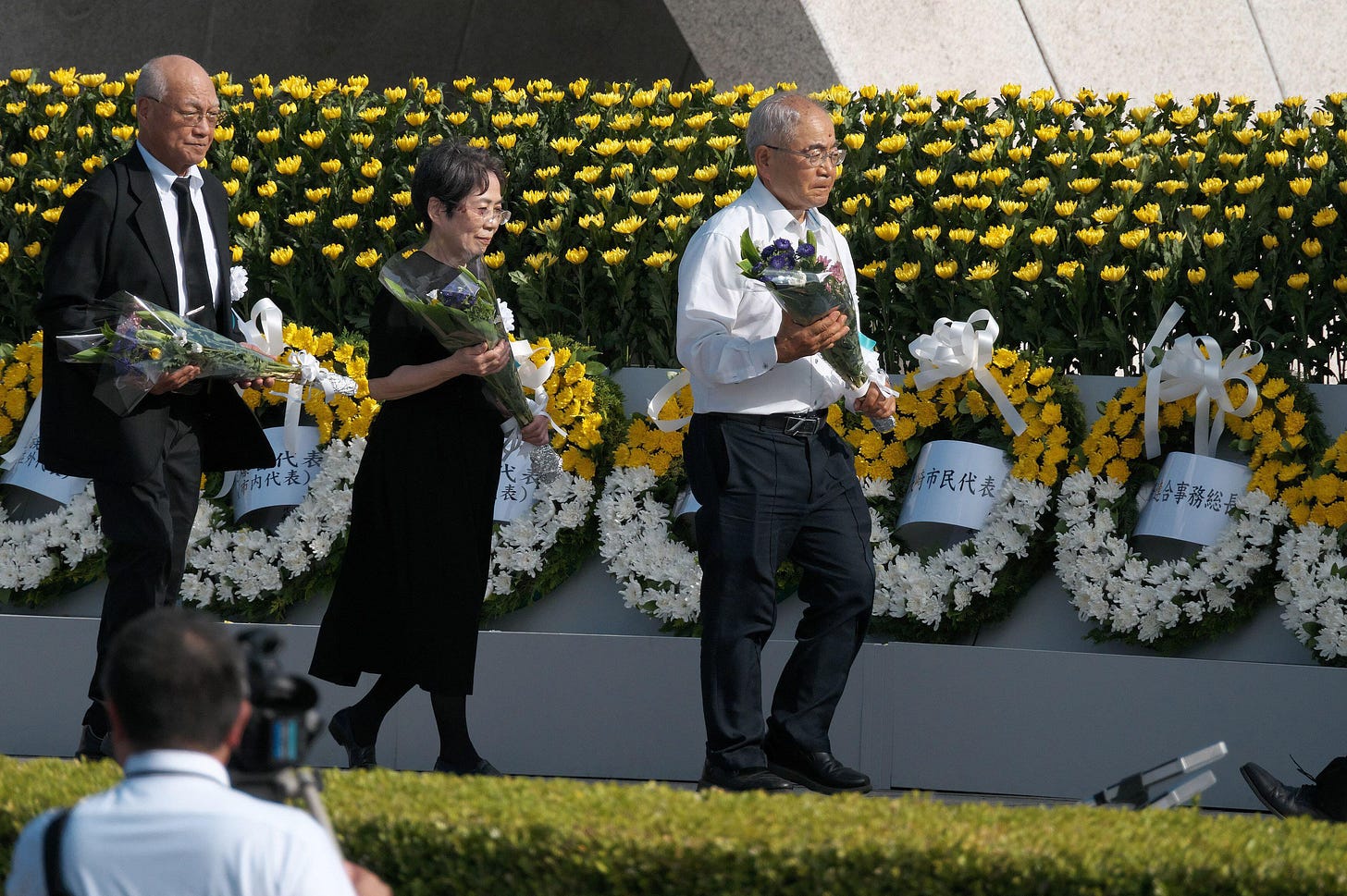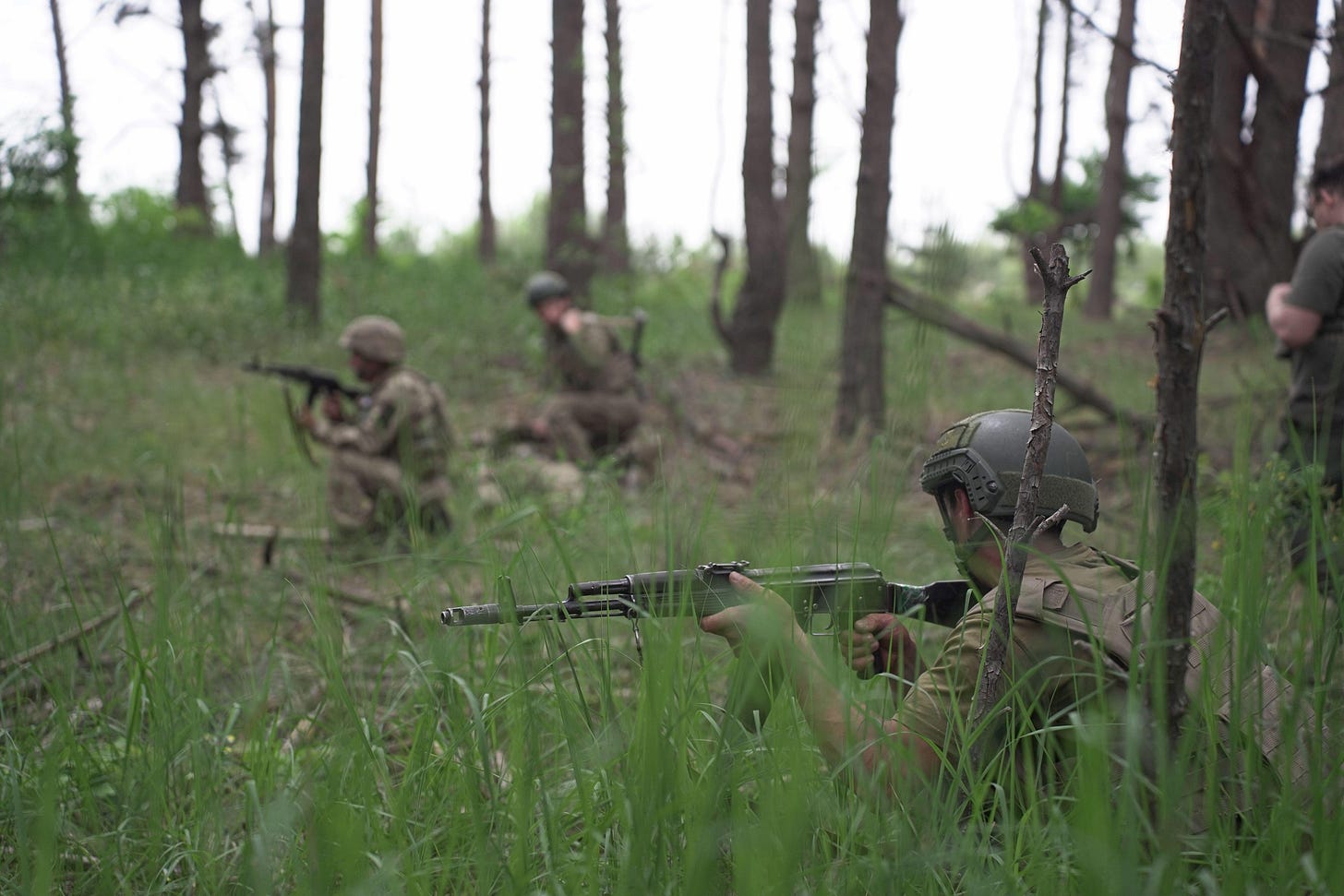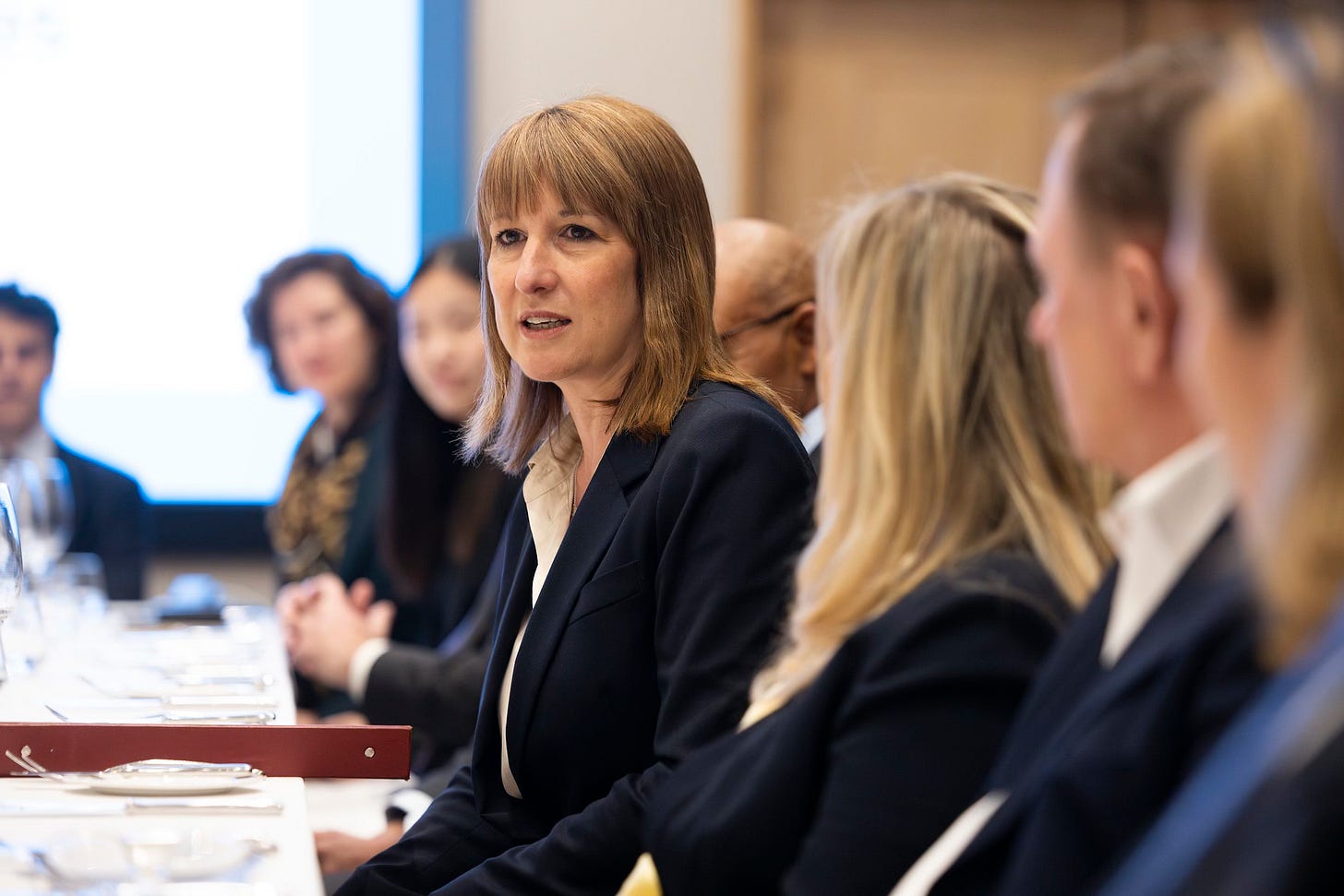The mayor of Hiroshima has called on the world’s most powerful countries to abandon nuclear deterrence today as Japan marks a solemn anniversary: 80 years since the Americans dropped the world’s first nuclear bomb on the city of Hiroshima, ending the Second World War through devastating means.
The ceremony in the city’s peace memorial park was attended by Japanese prime minister Shigeru Ishiba and officials from 120 countries. It was perhaps the last significant opportunity for large numbers of hibakusha – survivors of the atomic bombings of Hiroshima and Nagasaki – to recount their experiences about the horror of nuclear warfare. Less than 100,000 survivors are still alive, and their average age is 86.
This is a significant anniversary too because it falls at a time when the threat of an atomic weapon being used in the 21st century is on the rise. Speaking from Hiroshima, mayor Kazumi Matsui voiced grave concern about the “accelerating trend towards military build-up” worldwide, and over the growing acceptance of “the idea that nuclear weapons are essential for national defence”.
He labelled these developments a “flagrant disregard [of] lessons the international community should have learned from the tragedies of history”.
The dropping of the US atomic bombs in Hiroshima on 6 August 1945 and on Nagasaki three days later killed more than 200,000 people – some from the immediate blast and others from radiation sickness and burns. The legacy of the weapons still haunts survivors, many of whom have suffered multiple cancers from radiation exposure.
The horror unleashed prompted Japan to surrender, finally ending the Second World War. As Iain MacGregor writes in Engelsberg Ideas today, the Japanese empire’s acceptance of unconditional surrender was a unique moment. It was the only time in modern history that a major industrial nation has chosen to surrender without a single enemy soldier occupying its territory.
The use of such a devastating arsenal changed the post-war world forever. As MacGregor puts it, the realisation dawned: “If such a weapon should proliferate around the globe, they could not just destroy cities, but would wipe out civilisation itself.”
In 2024, Nihon Hidankyo, a Japanese group of atomic bomb survivors won the Nobel Peace Prize for their efforts to rid the world of nuclear weapons and raise awareness about the catastrophic consequences of their use.
Unfortunately, their mission has been heavily set back by an increasingly dangerous new world order. Amid such geopolitical volatility, the threat of widespread nuclear proliferation is once again rearing its ugly head.
Russian aggression in Europe, combined with the (partial) withdrawal of the US security blanket, has, for instance, already prompted Poland to shift its stance on nuclear weapons. In March, President Donald Tusk told Polish parliament: “We must achieve the most modern capabilities even in nuclear weapons.”
Nine countries currently possess nuclear weapons: the US, Russia, Britain, France, China, India, Pakistan, Israel, and North Korea. Another ten to twenty (including Japan) are “threshold” states, which possess much of the knowledge and skills to make their own bombs, but have yet to do so.
As James Rose wrote recently in Reaction, looking at recent history, it’s difficult to escape the bleak conclusion that having nuclear weapons buys you security.
After the collapse of the Soviet Union, the newly independent Ukraine was left with the world’s third-largest nuclear arsenal. In 1994, it agreed to hand over all of its nuclear warheads to Moscow in exchange for security assurances from Russia, the US and the UK.
Following Putin’s full-scale invasion of Ukraine, former US President Bill Clinton expressed regret for piling pressure on Kyiv to sign the 1994 deal, conceding that “Russia [would not] have pulled this stunt if Ukraine still had their weapons”.
The brutal regimes of Iraq’s Saddam Hussein and Libya’s Colonel Gaddafi both gave up their nuclear weapons programmes, only to later be attacked and deposed by Western states. Other nations will have taken note.
Successive Japanese government have rejected calls by hibakusha survivors to sign the Treaty on the Prohibition of Nuclear Weapons, setting out to ban the possession and use of nuclear weapons. In an ironic historical twist, Japan has done so because being under the nuclear umbrella of its now-ally America offers it protection.
Dozens of countries have signed the treaty, but – perhaps unsurprisingly – none of these signatures come from recognised nuclear powers or nations, such as Japan, that consider themselves to be indirectly protected by America’s nuclear arsenal.
Satoshi Tanaka, a Japanese atomic bomb survivor, expressed his fears today that the world “will continue to live alongside nuclear weapons that could wipe out humanity multiple times over.”
An end to the age of “Mutually Assured Destruction” does indeed appear further off than ever.
Caitlin Allen
Deputy Editor
David Waywell
Goodbye Reaction
Gerald Warner
Strategic neutralisation is Ukraine’s best survival tactic
Anthony Peters
Reeves is rapidly running out of options
Taxes must rise, warns UK think tank – The National Institute of Economic and Social Research (Niesr) has said that Rachel Reeves needs to raise taxes in the autumn to meet her self-imposed borrowing rules, warning that the government is on track to miss the target it has set itself by £41 bn. It recommended “a moderate but sustained increase in taxes” including reform of the council tax system to make up the shortfall.
Witkoff meets Putin in Moscow – “Constructive” talks have been held between Vladimir Putin and Trump’s special envoy Steve Witkoff over the “Ukrainian question.” The meeting comes two days ahead of Trump’s deadline, after which he is threatening to impose sanctions on Russia if it refuses to progress in ending its war in Ukraine.
RFK Jr cancels vaccine funding, impacting 22 pharma projects – Robert F Kennedy Jr, the US health secretary, has cancelled $500 million worth of funding for mRNA vaccines being developed to counter viruses that cause diseases such as the flu and Covid-19. Kennedy said that his department will shift funding towards “safer, broader vaccine platforms that remain effective even as viruses mutate.”
Company directors flee UK amid Labour tax raid – An estimated 3,790 company directors have reportedly left the UK since Rachel Reeves’s October budget, up 2,712 from the previous year. The UAE has become the most popular location for those leaving. The Treasury dismissed the exodus, insisting that the UK is still a “highly attractive” business location.
-
Cricket can be at its best when nothing much is happening, writes Patrick Kidd in The Critic
-
Fergus McIntosh in The New Yorker on the latest phase in Trump’s war on data.
-
Wall Street Journal: Apple to announce another $100 billion investment in American manufacturing.
-
Migration has radicalised middle England, says Madeline Grant in The Spectator.














